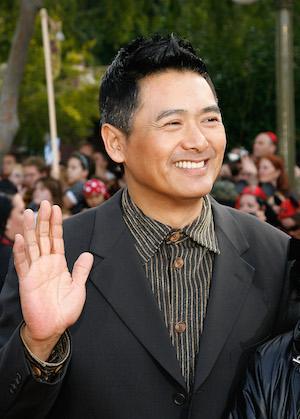Hong Kong film superstar Chow Yun-fat has once again voiced his opinion about the Umbrella Movement.
Chow, who is best known in the West for his role as Li Mu Bai in Ang Lee’s “Crouching Tiger, Hidden Dragon” (2000), is a vocal supporter of the mainly student-led pro-democracy Occupy Central movement, and the Chinese communist regime has recently taken the trouble to blacklist Chow for his stance.
By censoring Chow, Beijing is undoubtedly seeking to silence Chow by cutting into his income, but the 59-year-old movie star has taken it in his stride, telling Hong Kong’s Next Magazine that he will “just make less then.”
Beijing also cannot completely shut up Chow because he is easily accessible and very obliging to Hong Kong journalists, who frequently bump into him on the streets because Chow is one of those celebrities who do not own cars and instead take public transportation.
On Thursday, Oct. 30, a journalist from Hong Kong publication Ming Bao ran into Chow and asked the affable actor to share some thoughts about the current state of the pro-democracy occupation.






